Diary, 1994–1999
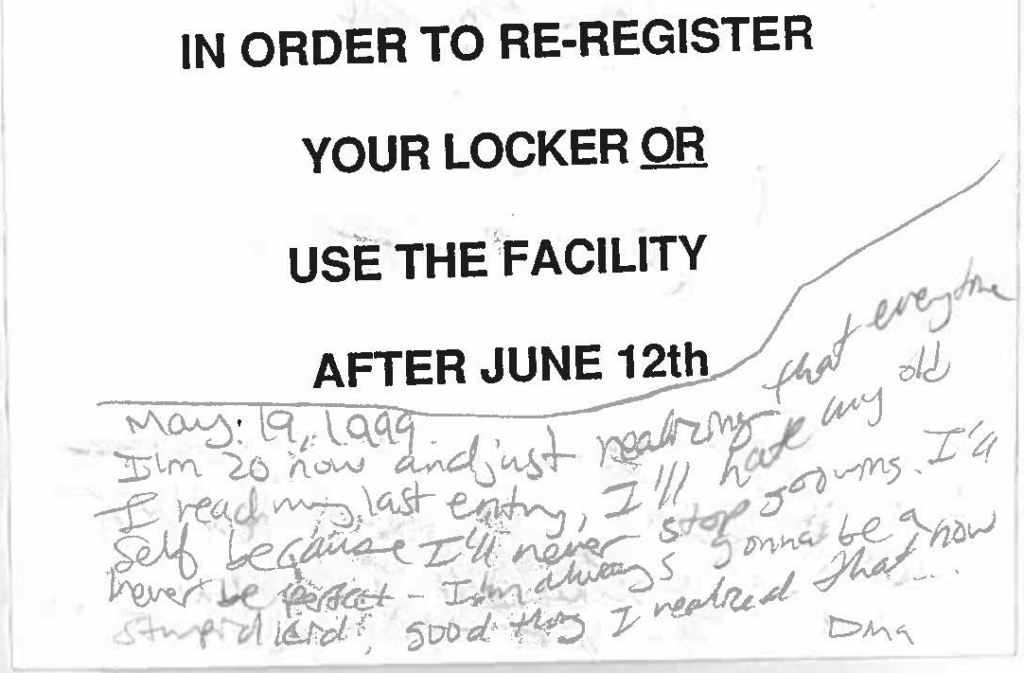
I don’t read my old work anymore. After a decade as a writer, I know exactly what it’ll make me feel—compassion, some pity; maybe there will be a phrase that I’ll admire, but mostly I’ll feel self-loathing. Last year I came across my diary from a summer when, five years after having arrived in Oklahoma as a refugee from Iran, I was determined to win a national championship in Tae Kwon Do so I could get in to an Ivy League university. It was the summer of 1994, and I was fifteen. I kept the diary because I was lonely, weighed down by money worries and shame of being Iranian, desperate to perform my Christian faith. I was anorexic and addicted to Tae Kwon Do, which I practiced for six or seven hours a day. Writing in the diary was a self-soothing mechanism—I wrote down every kind word anyone said to me.
Reading it now, I feel gentler toward my old self, a version of me now nearly three decades in the past. I read her entries like I might read a daughter’s. Maybe when I’m seventy, I will read my forty-year-old self with similar compassion. The most interesting parts of the diary come at the end. After that summer, I returned to the diary in 1995, 1997, 1998, and twice in 1999, and in each entry I seem appalled by my voice in the one before it until finally I give up and stop writing in it altogether. There was no chance of sounding anything but stupid to the Dina of the following year, though she was the audience I was most eager to impress. The penultimate entry, from February 1999, during my sophomore year at Princeton, reads: “Note to Junior Dina: Don’t read this crap anymore.” Then, a few months later, scribbling a final entry on a locker clean-out notice: “I’ll always be a stupid kid. Good thing I realized that now.”
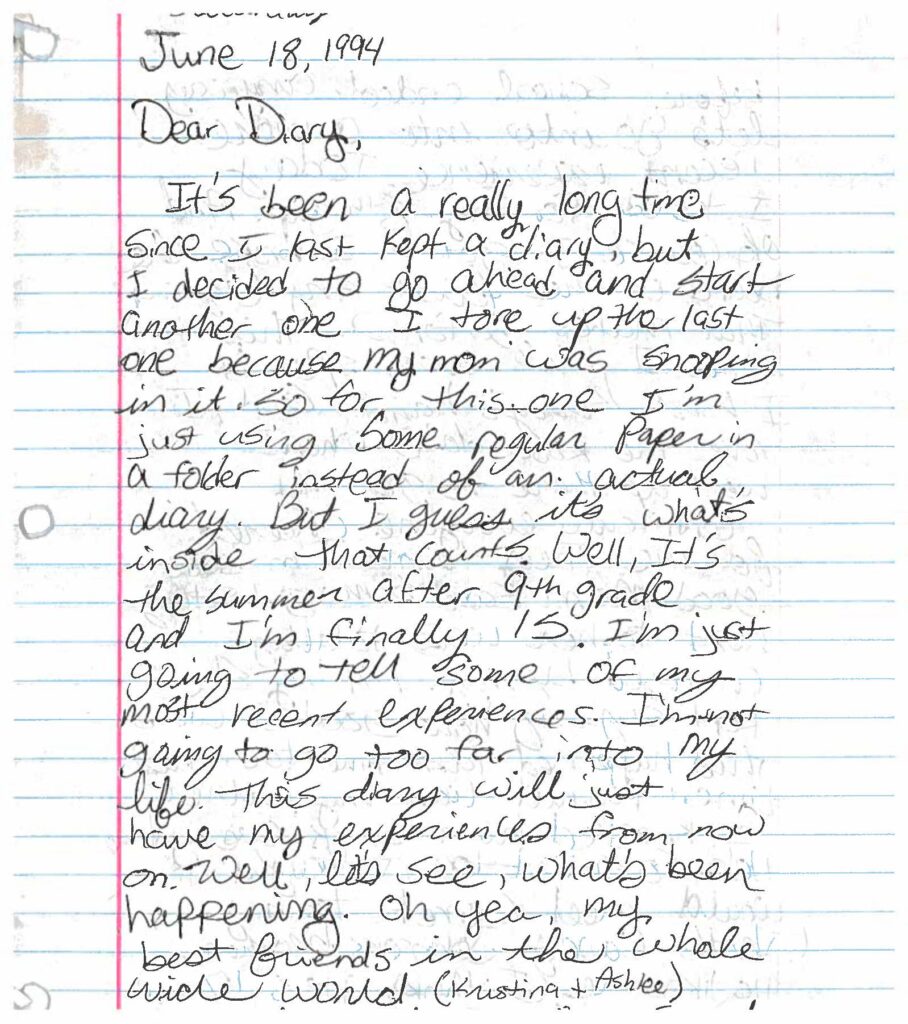
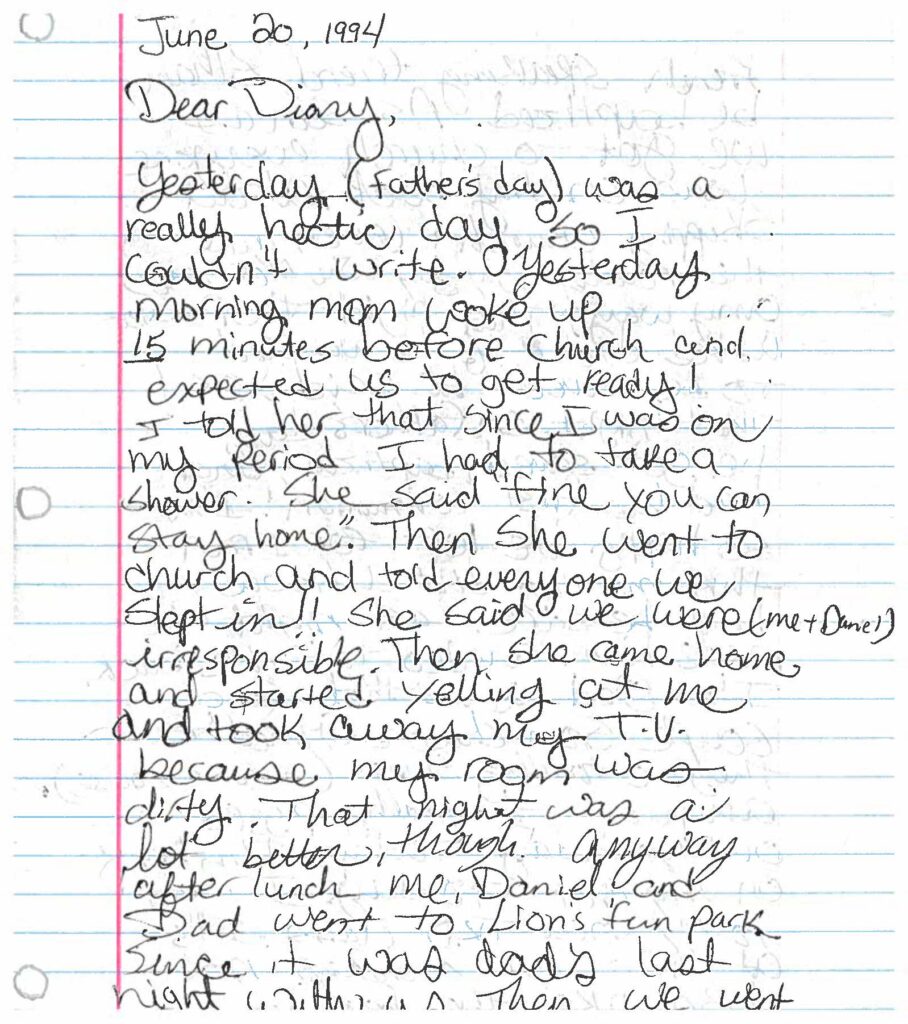
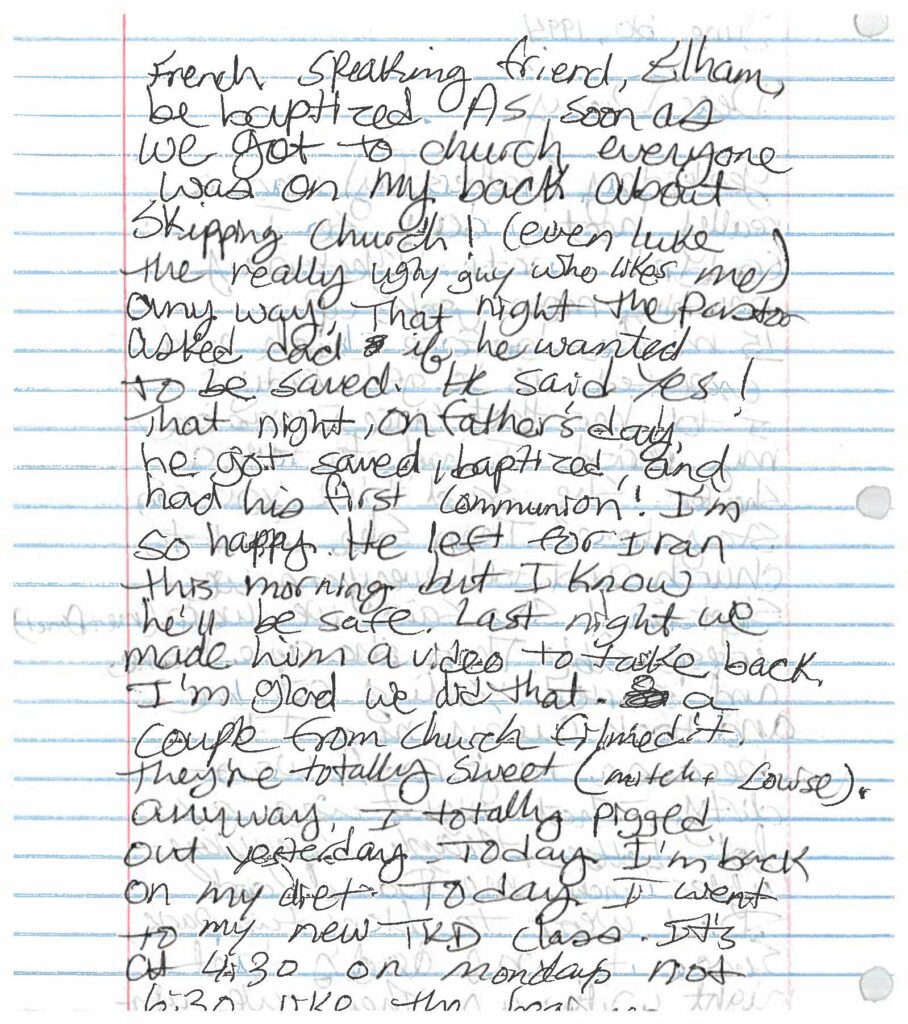
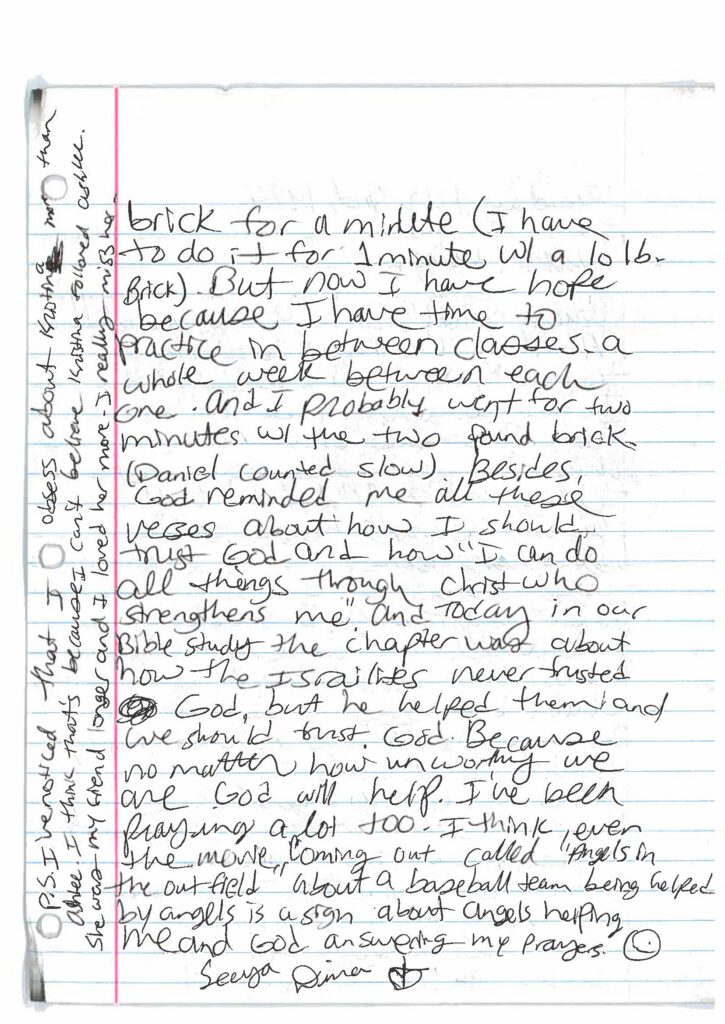
The following two pages are from a later entry, August 2, 1994.
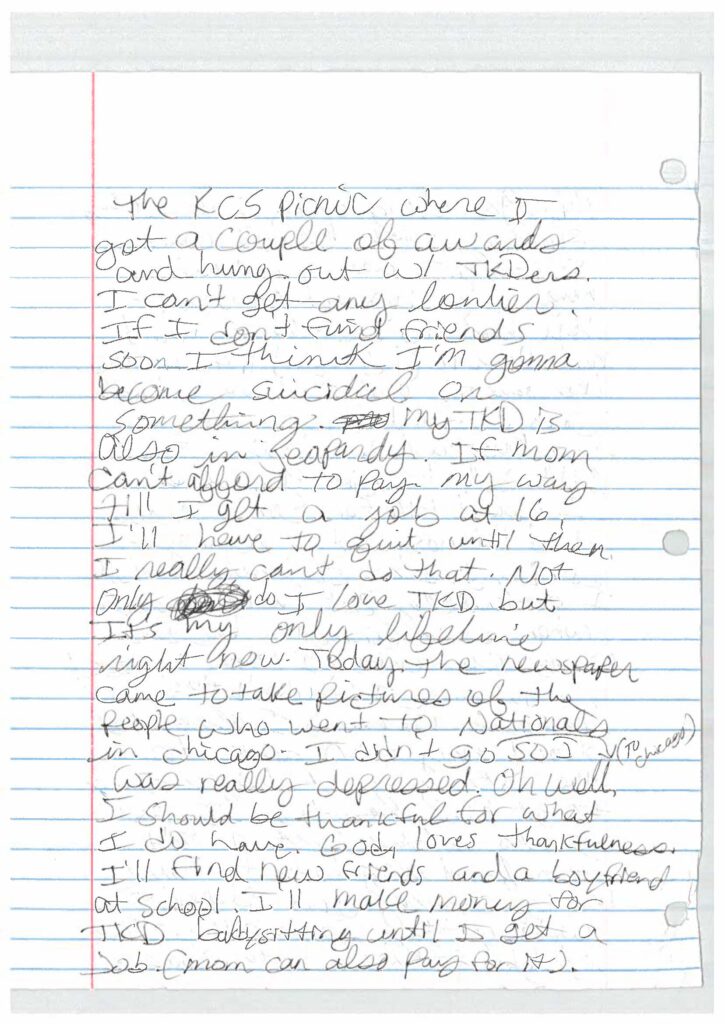
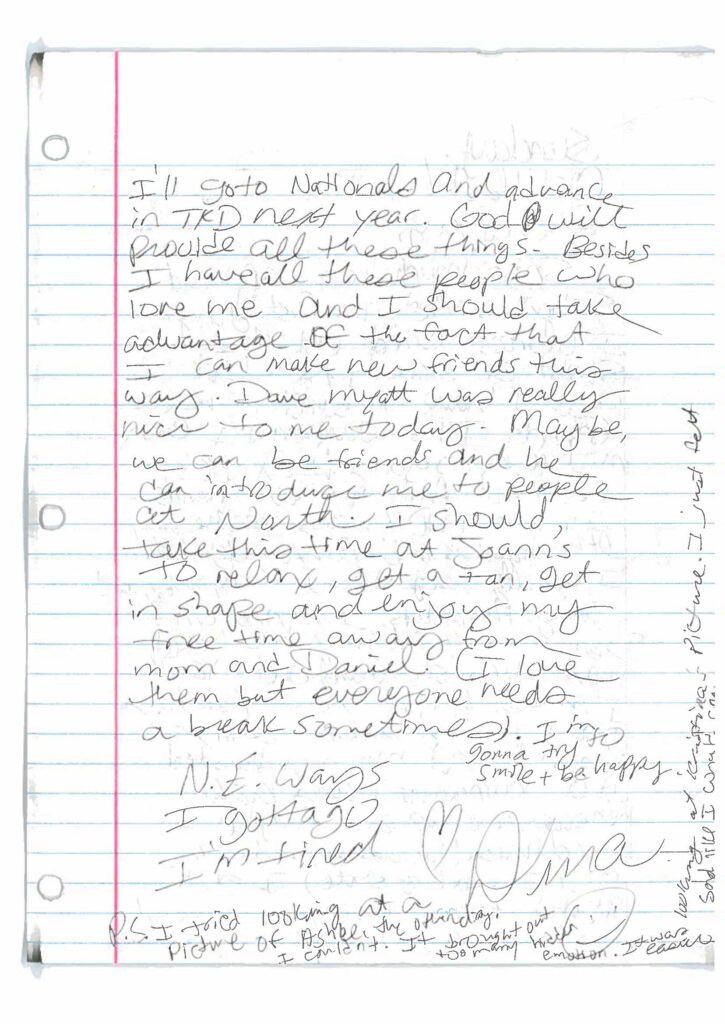
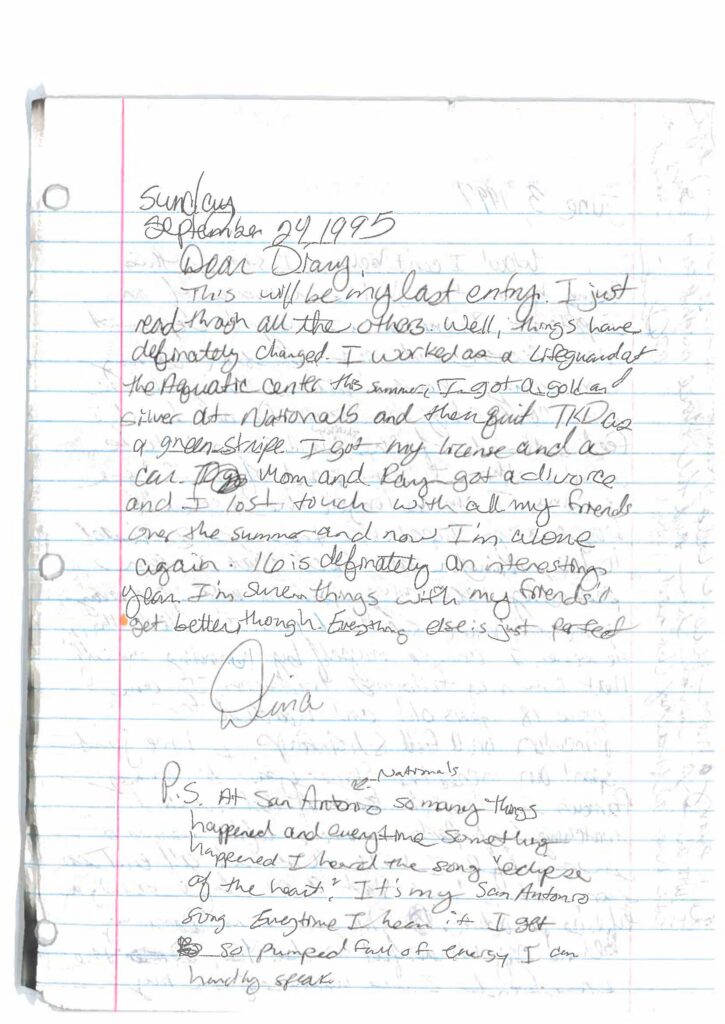
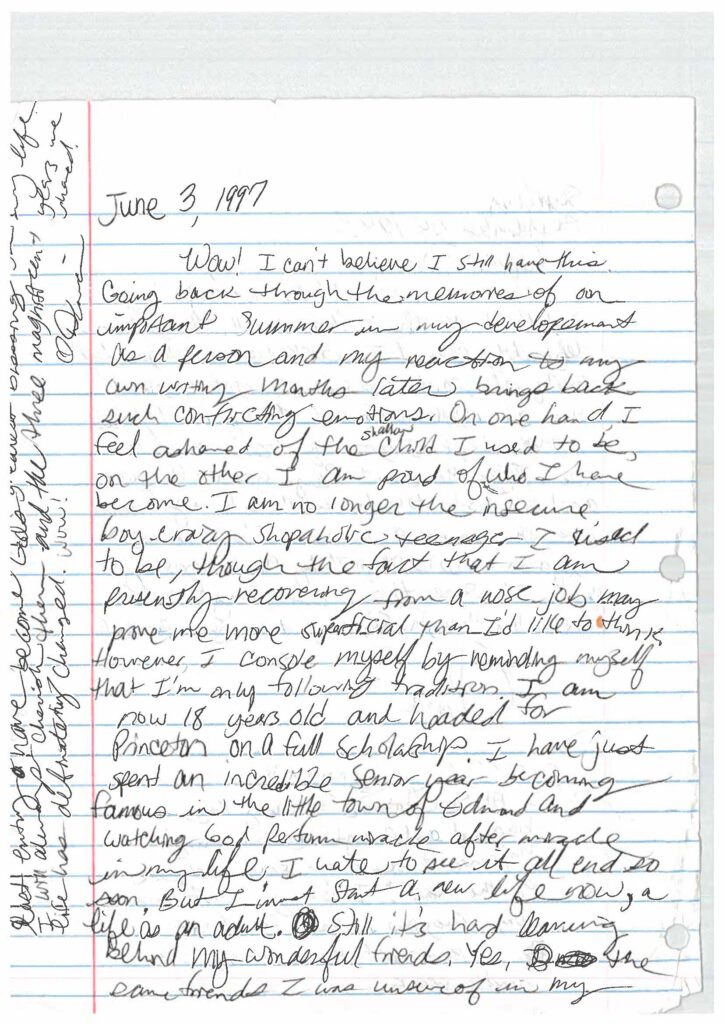
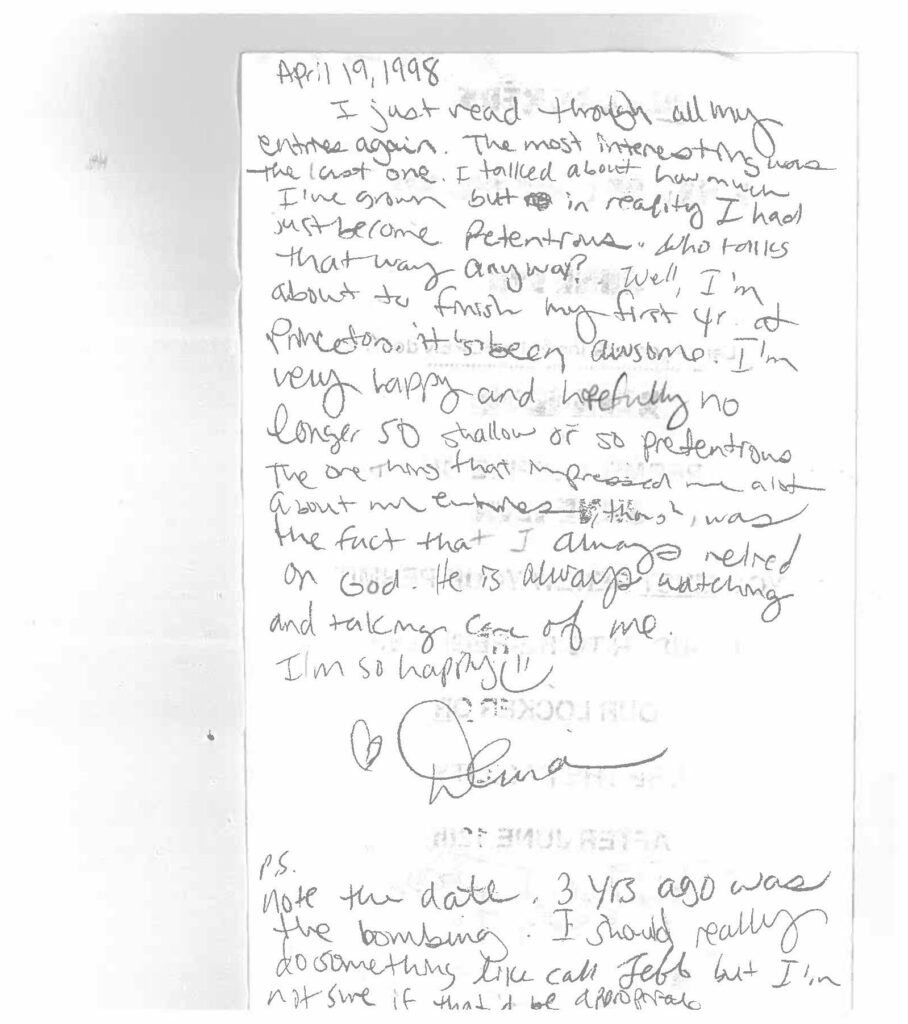
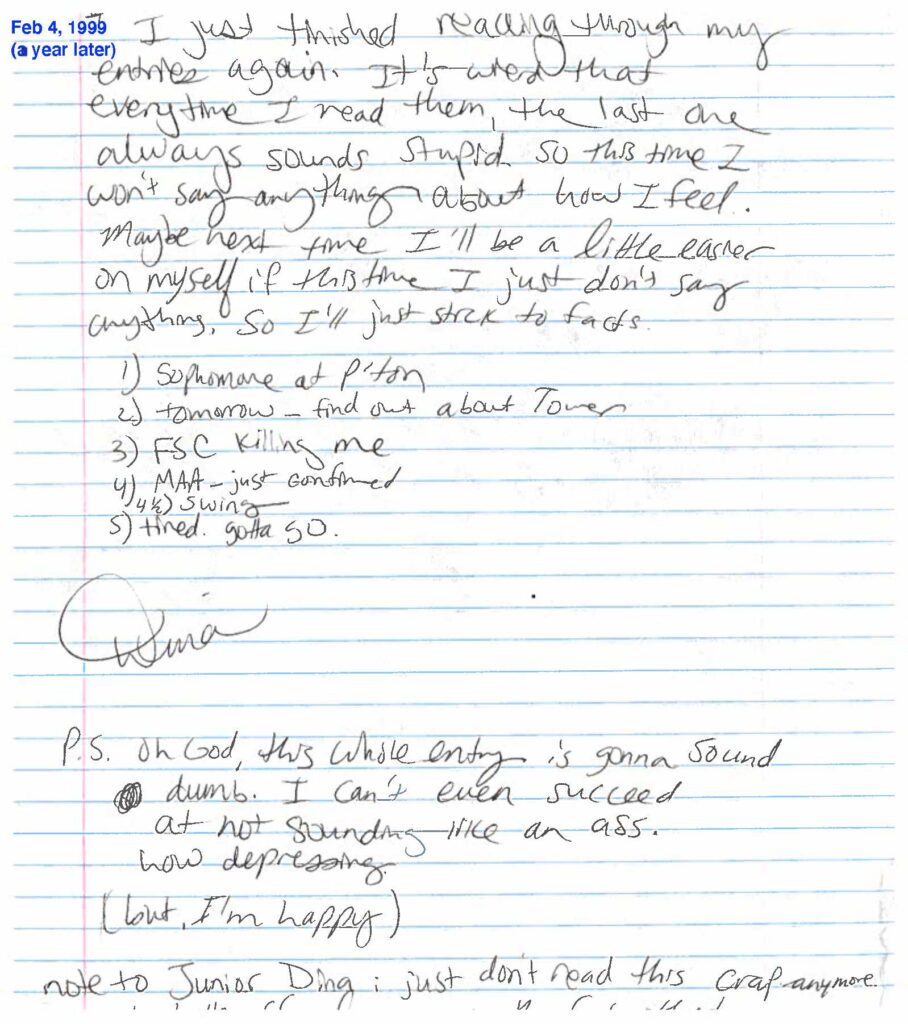
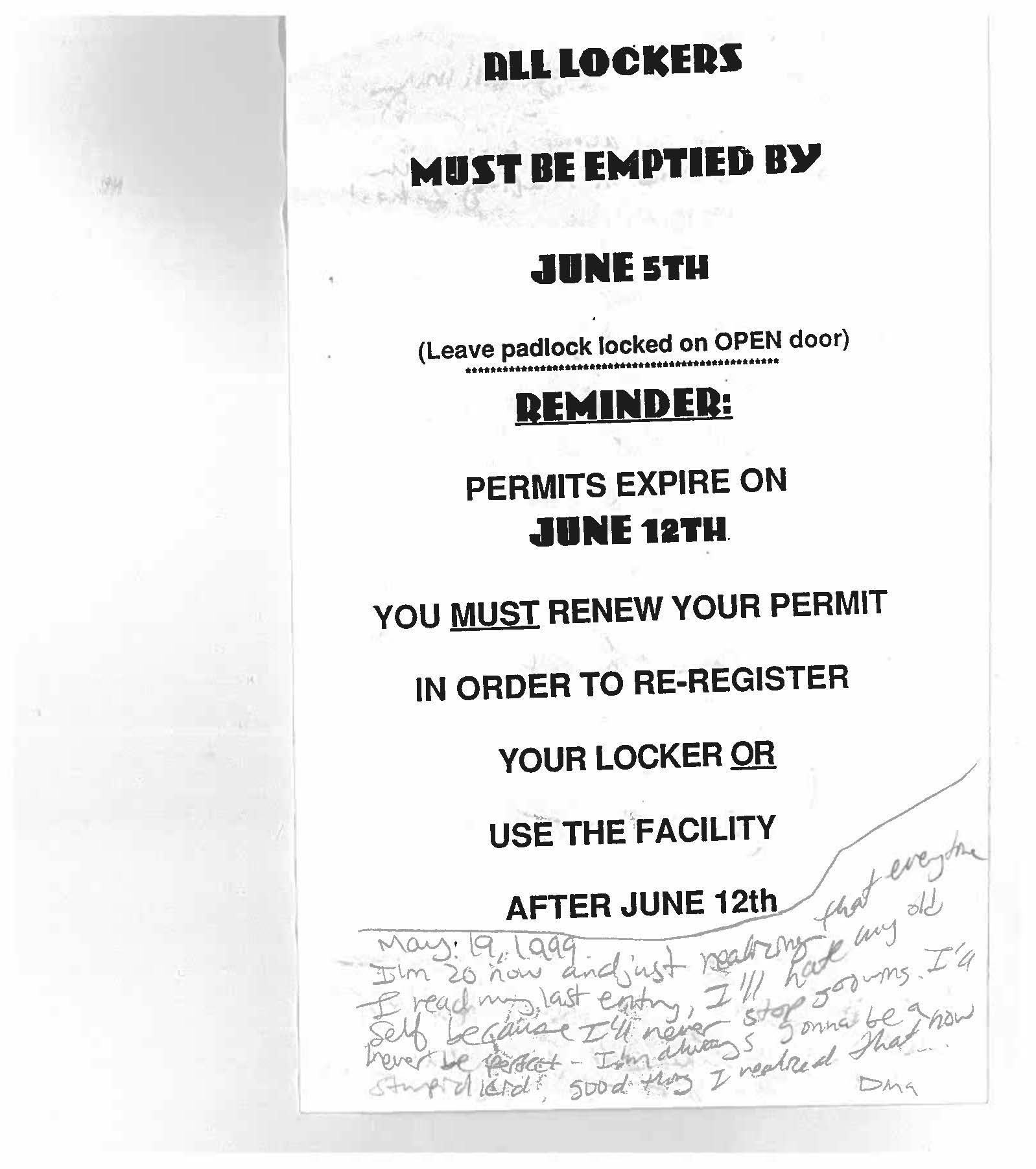
Dina Nayeri is the author of two novels and a book of creative nonfiction, The Ungrateful Refugee, which won the 2020 Geschwister-Scholl-Preis and was a finalist for the 2019 Los Angeles Times Book Prize. Nayeri is the recipient of a National Endowment for the Arts literature grant, an O. Henry Prize, and the Iowa City UNESCO City of Literature Paul Engle Prize. Her writing has appeared in the New York Times, the Guardian, the Washington Post, The New Yorker, and Granta.
Copyright
© The Paris Review
